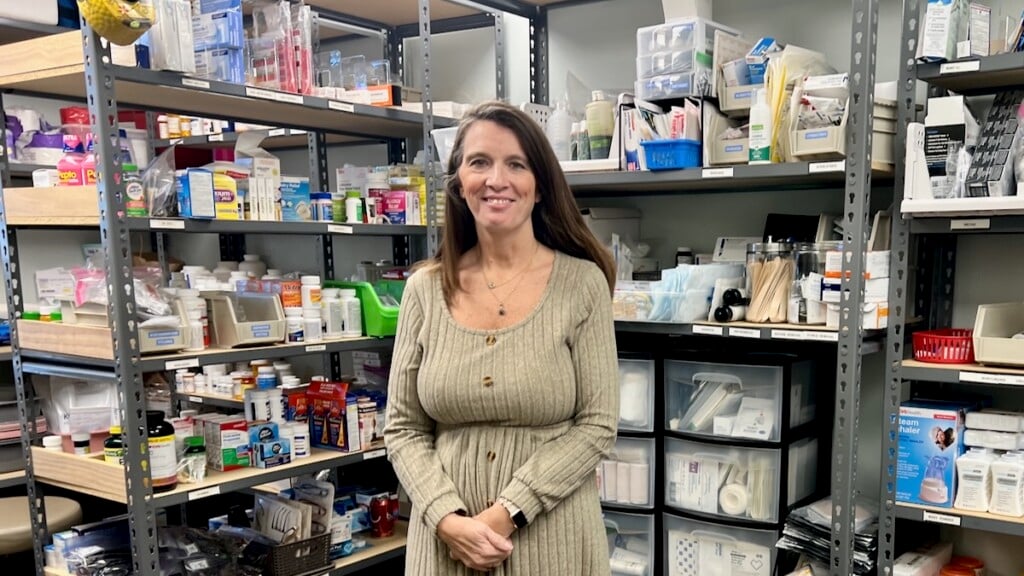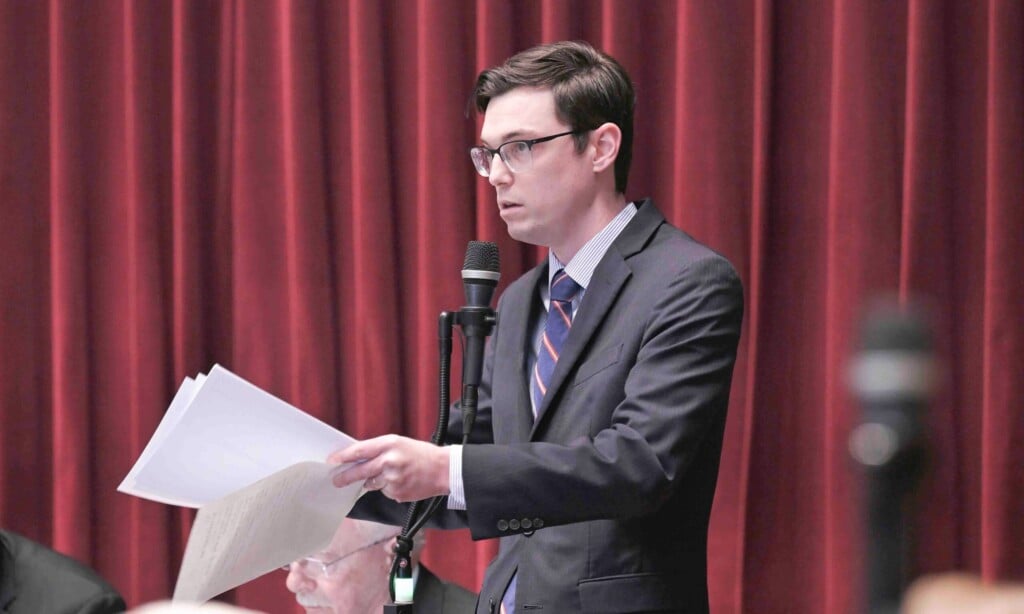Before doling out subsidies, Missouri should insist John Sherman and Clark Hunt testify

GEHA Field at Arrowhead Stadium, home of the Kansas City Chiefs, and Kauffman Stadium, home of the Kansas City Royals, are pictured on Feb. 8 (Anna Spoerre/The Missouri Independent)
As the Missouri legislature begins its special session to consider, among other things, taxpayer subsidies for the Kansas City Chiefs and Royals, lawmakers are hearing from a parade of stakeholders — Gov. Mike Kehoe, policy analysts, lobbyists, activists and the many special interests who stand to gain from the deal.
They should also hear from the two individuals who stand to benefit most: Royals owner John Sherman and Chiefs owner Clark Hunt. These men should appear before the Missouri House and Senate to explain why taxpayer subsidies of this scale are justified. Anything less short-circuits public accountability.
During a March 2024 debate ahead of the Jackson County vote on funding a new downtown stadium, I was asked if I’d ever met Sherman. I hadn’t, though KCPBS invited Sherman to participate. His office declined every offered date.
On April 2, Jackson County voters rejected the stadium-tax extension by a decisive 58% to 42%. Their position was clear: no blank checks, no vague promises. If legislators now move forward with a $300 million bond package without in-person testimony from the owners, they risk replicating the same lack of transparency voters already rejected.
The current proposal would authorize hundreds of millions in public bonds, yet these franchises are far from lacking resources. Forbes values the Chiefs at $4.85 billion and the Royals at $1.3 billion. When billion-dollar teams request public subsidies, their owners should answer for the proposal, in person.
Key facts remain unknown: where the Royals would build, what share of costs the teams would cover, and how much the Royals would spend on the stadium itself versus adjacent commercial ventures. As in Jackson County, taxpayers are being asked to commit before the teams do. That sequence—public commitment before private investment — betrays the principles of responsible budgeting.
Until these facts are disclosed on the record, the proposal’s benefits remain impossible to assess.
Kehoe has cited the teams’ economic impact to justify the session. his justification is a familiar one — and often misleading. A 2017 report from the Federal Reserve Bank of St. Louis brief warned that many stadium impact studies “fail to include opportunity costs,” noting that spending inside an arena often displaces spending elsewhere in the local economy.
That displaced spending often supports a wider variety of small businesses and contributes more reliably to public revenue through sales, property, and income taxes. By contrast, revenue from stadium-centric development tends to concentrate in the hands of franchise owners.
Kehoe also cited claims from the Royals projecting 8,400 jobs, $400 million in annual labor income, and $1.2 billion in economic output. These numbers were distributed to lawmakers just before the regular session ended. They lack independent review and should be treated accordingly.
These Missouri figures also echo broader trends. Independent research shows stadium subsidies rarely yield significant economic gains. In Nevada, legislators approved $750 million in public funds for the Raiders in 2016. Clark County now estimates total public costs ballooned to $1.35 billion—nearly double the original allocation. In New York, the new Bills stadium is projected to cost taxpayers more than $1.1 billion. Missouri lawmakers should hear why this case will be different.
A 2023 study published by the Association for Public Policy Analysis and Management explains why so many of these projections fall short. The authors—John Bradbury, Dennis Coates and Brad Humphreys—found that reports sponsored by teams or developers often use inflated multipliers, unrealistic assumptions, and conflate gross and net impacts.
Missouri senators should examine how the Royals’ numbers were generated—and how they remain so precise without a confirmed stadium site.
There is clear precedent for having owners testify. In 1997, Twins owner Carl Pohlad testified before a joint Minnesota House–Senate panel to press for a cigarette-tax-backed ballpark package. Vikings owner Zygi Wilf followed suit in 2006, fielding committee questions on the state-county deal that became U.S. Bank Stadium. And in 2016, Raiders owner Mark Davis appeared in Carson City to urge Nevada lawmakers to approve a $750 million hotel-tax subsidy for Allegiant Stadium—a commitment that will cost Clark County about $1.1 billion with interest over 30 years. Missouri can—and should—demand the same level of transparency and accountability.
Bradbury and colleagues put it plainly: “Professional sports venues generate limited economic and social benefits, which fall far short of the large public subsidies they typically receive.” These deals often amount to transfers of public wealth to private entities.
Redirecting even a portion of this investment to infrastructure, education, or health would likely yield more durable benefits for Missouri families.
Let’s not forget that merely considering these subsidies is a financial burden. The costs of convening a special session are real. The Jackson County election, demanded by the teams, cost local taxpayers roughly $1 million.
Before approving any subsidy, senators should secure clear, on-the-record answers:
- What is the private-capital commitment, in dollars?
- Who is responsible for covering overruns?
- What is the expected net new revenue, after substitution effects?
- What milestones—site control, zoning, environmental review—must precede bond issuance?
- Are there claw-back or profit-sharing provisions if forecasts fall short?
- What is the long-term plan for demolition or reuse once the stadium reaches end-of-life?
It is not unreasonable to expect Sherman and Hunt to expain their request for public funds in person. If the governor can meet with them behind closed doors, the House and Senate—and the public—deserve that same access, in open session.
Missouri Independent is part of States Newsroom, a nonprofit news network supported by grants and a coalition of donors as a 501c(3) public charity. Missouri Independent maintains editorial independence. Contact Editor Jason Hancock for questions: info@missouriindependent.com.




